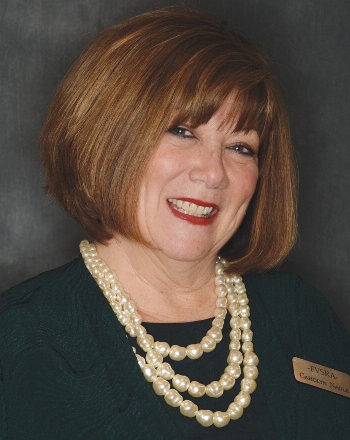 As a college student majoring in Recreation and Park Administration (with an emphasis in Therapeutic Recreation) at Illinois State University, Carolyn Nagle's first "real" job in the recreation industry was directing the first summer day camp program for the Limestone Township Park District in Illinois.
As a college student majoring in Recreation and Park Administration (with an emphasis in Therapeutic Recreation) at Illinois State University, Carolyn Nagle's first "real" job in the recreation industry was directing the first summer day camp program for the Limestone Township Park District in Illinois.
A rural area, Limestone Township had no formal recreation opportunities for local residents. "The park district had no facilities at the time, but did have acres of undeveloped land available," said Nagle, who is the current executive director of the Fox Valley Special Recreation Association (FVSRA) in Aurora, Ill.
After Nagle spoke with her father about how Limestone needed some summer activities, he suggested she speak with a neighbor who was on the park district board to see if there would be any interest in a summer program. She created a proposal that included a budget, marketing plan, equipment/supplies list, manpower and an eight-week schedule for a summer day camp for kids between the ages of 5 and 12. "I made a formal presentation to the board, which they immediately approved," Nagle said. "Approximately 40 kids enrolled in the free day camp and my career was off," she said.
The appeal of the recreation industry for Nagle was in being able to create fun and enjoyment for others. "Not too many careers have 'fun' as a major goal," said Nagle, who personally enjoys yoga, reading, dancing, baking, playing the piano and playing cards, as well as going to the park in her free time.
Today, Nagle's work as executive director has been "amazing," she said, with her previous experiences as director of the SOAR Program in McLean County and as executive director of the Northern Suburban Special Recreation Association having helped prepare her for the FVSRA.
When she joined FVSRA, the board had just completed a comprehensive agency evaluation of the services and operations in place for nearly 15 years, and identified numerous challenges facing the agency and suggested several goals the board of directors wanted to see met. "Working to establish a new philosophy and professional expectations with an existing team helped us meet the board expectations quickly and set us on a new course for service delivery," she said.
Today, the association serves six park districts and one village parks and recreation department. "When we celebrated our 40-year anniversary in 2016, it was amazing to look at how many of our participants have grown up with FVSRA and the friendships that have been created over the years."
One of Nagle's favorite roles with FVSRA is in serving as the AKtion Club liaison for FVSRA to the Aurora Kiwanis Club. "As a member of the Aurora Kiwanis, I, along with an FVSRA staff member, coordinate the Club designed for adults with disabilities," she said. "I love this opportunity to take me out of my office, to work with the individuals that make our agency what it is and to be a part of the FVSRA 'family'."
Nagle said her accomplishments throughout her career at FVSRA include, for one, her involvement with the Special Recreation Association directors and local legislators to develop and pass state legislation that assisted with funding for local park districts and, ultimately, the Special Recreation Associations. As a result, three new communities were able to join FVSRA and participate as residents in the services offered. A second accomplishment was being involved in the design of the association's offices at the Vaughan Athletic Center. A third was the development of the FVSR Foundation. "Helping to recruit the foundation board members has introduced me to some very special people, all very committed to our mission of enriching the lives of individuals with disabilities," she said, adding that she would like to see the agency continue to strive to help create "universal access" in all aspects of the communities.
"While we focus on the leisure and recreation aspect of people's lives, what we do to include everyone through play, facility access, the utilization of person first language and recognizing the abilities, rather than disabilities," she added, "will help create a more inclusive world."


